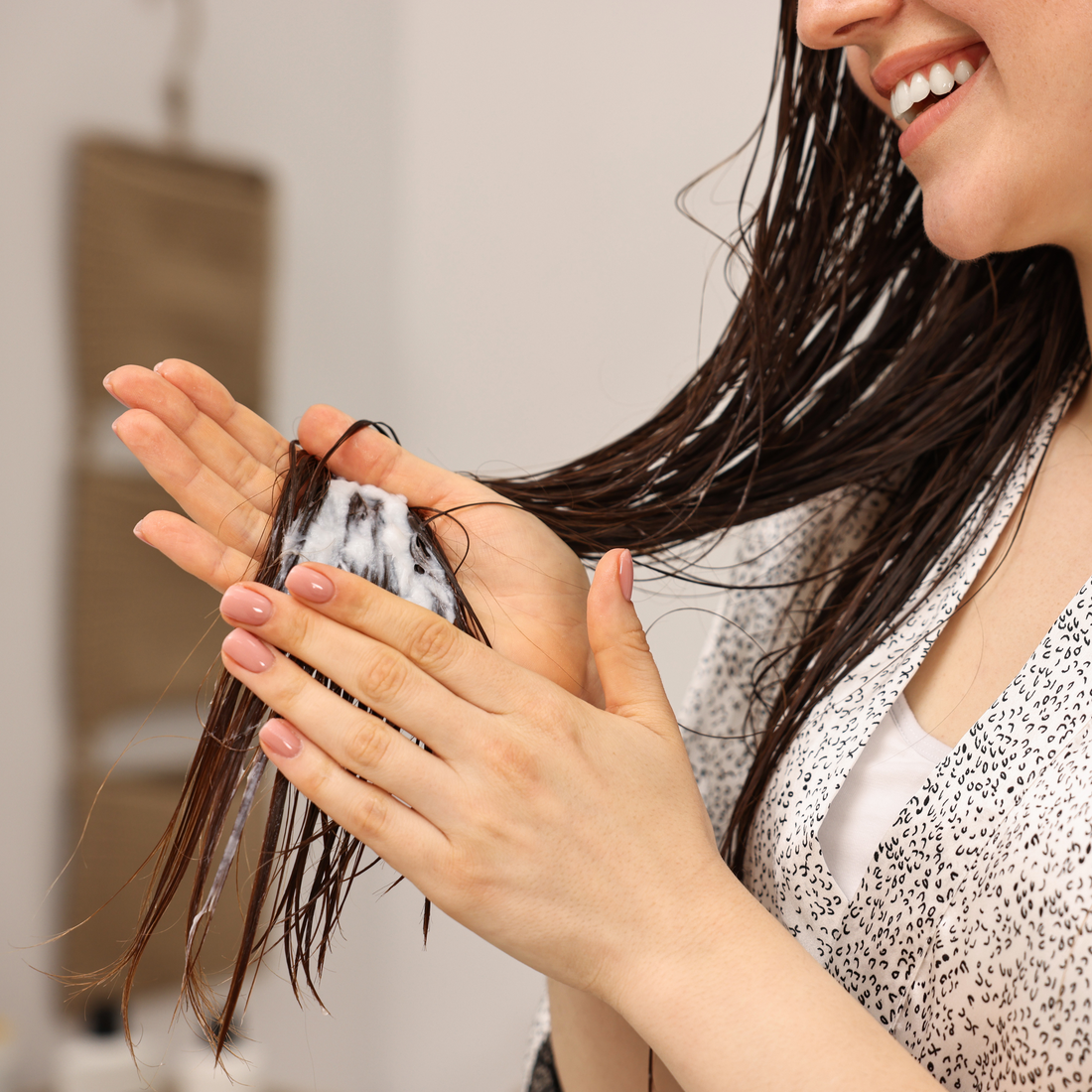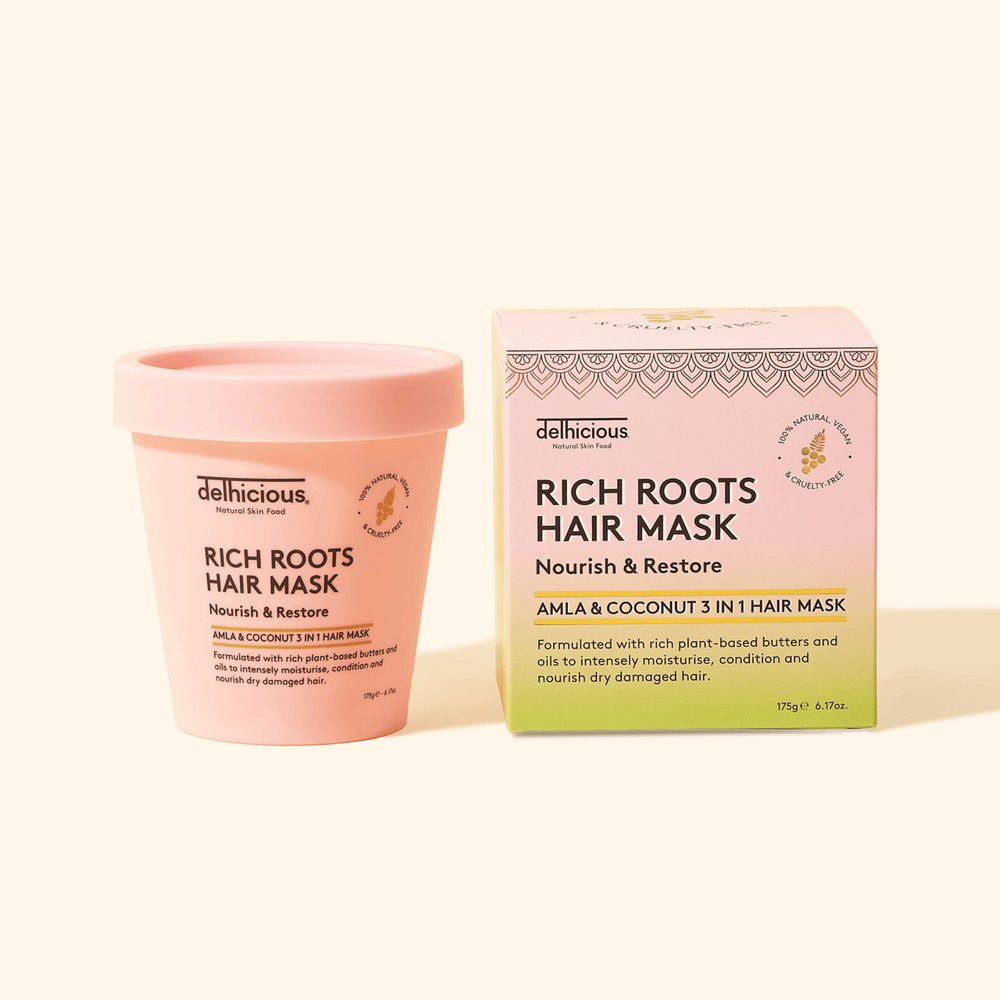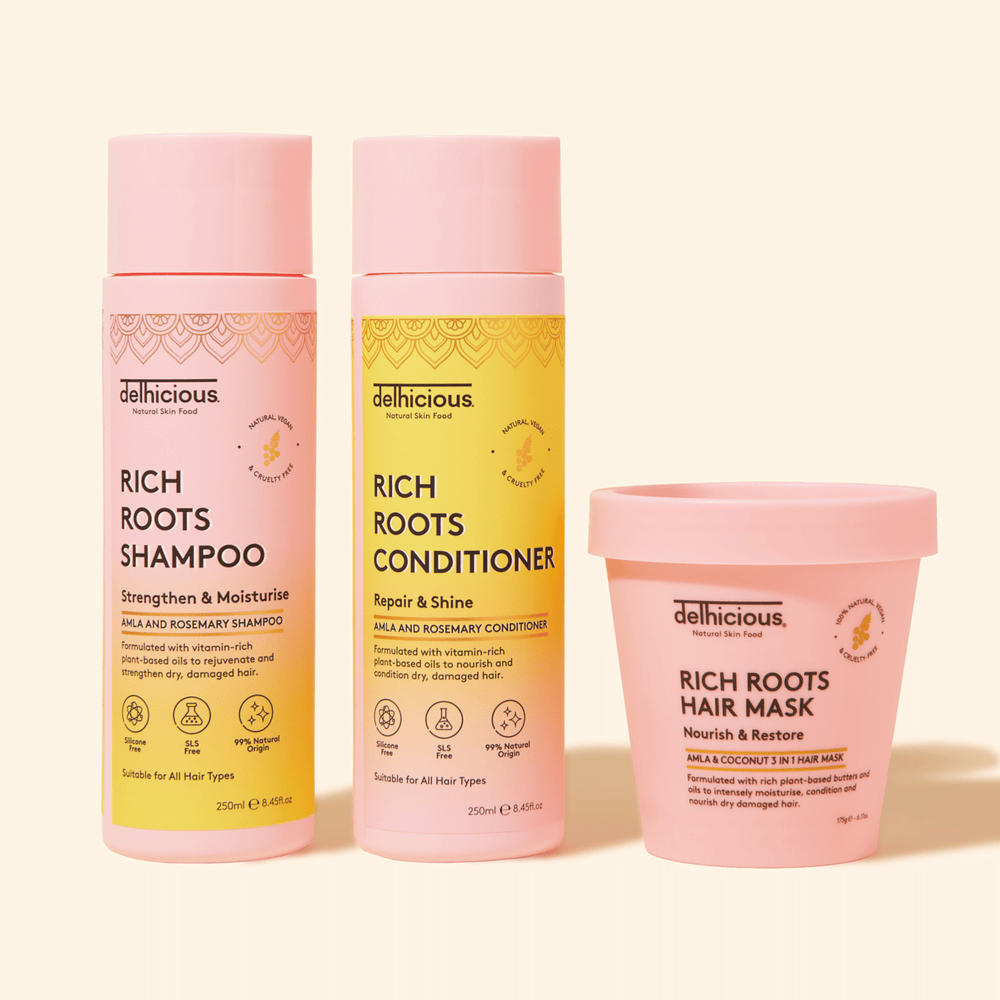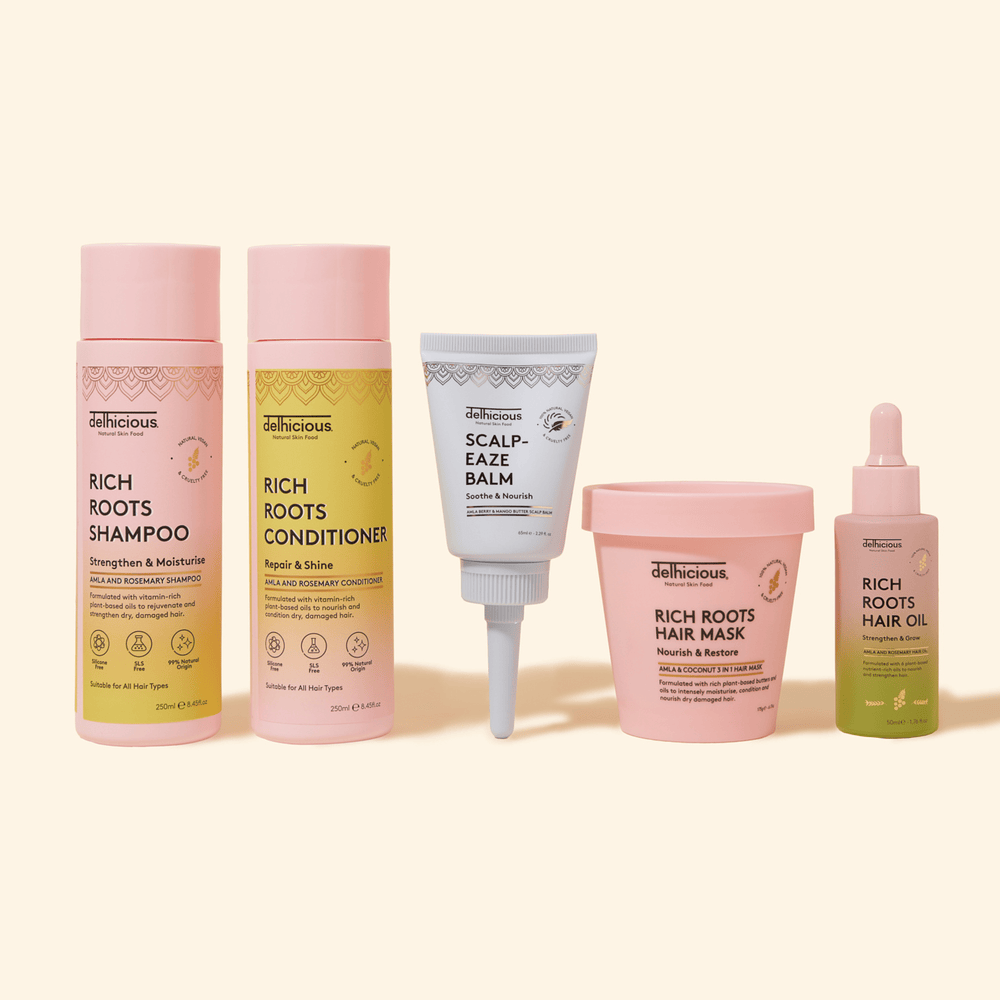
If you’re in need of a little hair TLC (who isn’t?), hair masks are your go-to secret weapon. Whether you're dealing with dry ends, frizz, or lacklustre locks, a good hair mask can transform your strands from "meh" to "wow" in no time. But, like anything in beauty, not all hair masks are created equal - so how do you know which one’s best for your hair type?
Don’t worry! We’ve here to help. This guide will walk you through everything you need to know about hair masks, the best natural ingredients to look out for, how to choose the right one for your hair, and - spoiler alert - how to use them for maximum impact.
What Is a Hair Mask?
Think of a hair mask like a spa treatment for your hair. It’s a deep-conditioning treatment that works to repair, hydrate, nourish, and strengthen your hair. Hair masks are usually thicker than regular conditioners, often packed with rich, natural ingredients that penetrate deeper into your hair follicles to provide longer-lasting moisture and care.
Masks can target a variety of issues: from dryness and frizz to damaged or colour-treated hair, and even scalp health. They work wonders when you need more than just your usual conditioner, especially if your hair is in need of some serious attention.
Natural Ingredients to Look for in Hair Masks
When choosing a hair mask, it’s best to opt for ingredients that are kind to your strands and scalp. Natural ingredients are often the most effective because they’re packed with nutrients your hair craves. Here are some of the best ones to look for:
1. Avocado
Avocado is rich in vitamins, healthy fats, and antioxidants that hydrate and nourish the hair shaft. It can help replenish moisture, making it perfect for dry or damaged hair. Plus, it’s an excellent source of biotin, which promotes hair strength and growth!
2. Coconut Oil
Coconut oil is a holy grail for many. It’s packed with fatty acids that deeply penetrate the hair, providing intense moisture and preventing protein loss. It also has antibacterial properties, which can help with scalp health. It's especially great for curly, dry, or coarse hair.
3. Honey
Honey is a natural humectant, which means it draws moisture from the air into your hair. It also has antibacterial properties, helping to soothe your scalp and keep it healthy. A honey-infused mask will leave your hair smooth, shiny, and hydrated.
4. Argan Oil
Often called “liquid gold,” argan oil is packed with essential fatty acids and vitamin E, which help nourish and hydrate dry, brittle hair. It’s known for its ability to restore shine, reduce frizz, and prevent split ends - making it a must for those with damaged or frizzy hair.
5. Shea Butter
Shea butter is like a big hug for your hair! It helps to seal in moisture, smooth frizz, and improve elasticity, making it a go-to for anyone with thick, curly, or dry hair. It’s especially effective for soothing a dry scalp.
6. Aloe Vera
Aloe vera has soothing properties, making it perfect for irritated or dry scalps. It’s also a natural moisturiser, and its enzymes can help promote hair growth by clearing dead skin cells from the scalp. Aloe vera also works wonders for shiny, smooth hair.
7. Jojoba Oil
Jojoba oil is one of the most hair-friendly oils out there, as it’s structurally similar to the oils your scalp produces naturally. This makes it great for balancing oil levels, moisturising, and promoting healthy hair growth.
Understanding Hair Porosity
Before you slap on that hair mask, let’s talk porosity. No, this isn’t a new skincare buzzword - it’s about how your hair absorbs and retains moisture. Hair porosity affects how well your hair can take in the goodness from your mask. There are three basic porosity types:
1. Low Porosity
Hair with low porosity tends to resist moisture. It’s often tightly closed at the cuticle level, so products tend to sit on top of the hair rather than absorb. This hair type can feel dry and look flat, even after conditioning. People with low porosity hair will benefit from masks that are lightweight and use heat to help the ingredients penetrate better.
2. Medium Porosity
This is the golden middle ground. Hair with medium porosity can absorb and retain moisture relatively easily. It doesn’t get weighed down by products, and it holds styles well. People with medium porosity can use a variety of masks, depending on their specific needs (hydration, repair, etc.).
3. High Porosity
High porosity hair has gaps or holes in the cuticle, allowing moisture to enter easily - but it can also lose moisture just as fast. This hair type can be prone to frizz, breakage, and dryness. Hair masks with richer, heavier ingredients (like shea butter or avocado) work best for high porosity hair, as they help seal in moisture and smooth the cuticle.
How to Use Hair Masks Based on Your Porosity
Now that you know your hair porosity, it’s time to use your hair mask correctly! Here’s a simple guide to get the best results:
Low Porosity Hair:
- How to Use: Apply the mask to damp hair, but be sure to use warm water or heat (a shower cap or a warm towel works wonders) to help open the cuticle and allow for better absorption. Leave the mask on for 10 - 20 minutes.
- Best Ingredients: Lighter oils like jojoba or argan oil, aloe vera, or honey-based masks work best.
Medium Porosity Hair:
- How to Use: You can use most masks without any special techniques. Just apply to clean, damp hair and leave it on for 15 - 30 minutes. If you're in the mood for a little extra love, you can use a heat cap for 10 minutes to help boost absorption.
- Best Ingredients: Coconut oil, avocado, or a mixture of oils and butters will work well for medium porosity hair.
High Porosity Hair:
- How to Use: This hair type benefits from rich, hydrating masks that seal the hair cuticle. Apply to damp, freshly washed hair, and leave the mask on for 20 - 30 minutes. You can also use heat (like a shower cap or a heated towel) to lock in the moisture and let the mask penetrate deeply.
- Best Ingredients: Opt for masks with heavier oils and butters (think shea butter, avocado, or coconut oil) to lock in hydration and smooth the cuticle.
How Often Should You Use a Hair Mask?
It really depends on your hair's needs. For dry or damaged hair, once a week is ideal. If your hair is healthy and just needs a little boost, you can do it every two weeks. For those with oily hair, once a month should be enough to avoid buildup.
Final Thoughts
Hair masks are like a vacation for your hair - treat them as such! Finding the right mask with the best natural ingredients and knowing how to use it based on your hair’s porosity will make a huge difference in your hair’s health and appearance. Whether you're looking for hydration, strength, or shine, a hair mask is your ticket to gorgeous, nourished locks.
So go ahead, treat yourself, and give your hair the love it deserves. Your strands will thank you! Check out our Rich Roots 3-in-1 Hair Mask which is suitable for all porosity hair.




